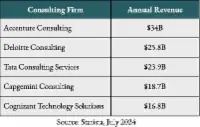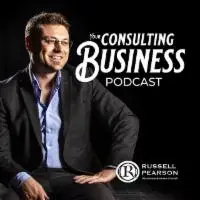
Turn Your Experience into a Services Business
Good Morning!
You're not in the wrong place. This is the new Black Belt Startup Newsletter, formerly the Daily Advisor. I have lots in store for you.
On the Mat
- Consultant vs. Service provider
- Four signs YOU should start a services business
- It's a smoothie
Let's Train
Who are Consultants & Service Providers?
Consultants are "brains for hire"—professionals with specialized knowledge who charge clients for access to that expertise.
Service providers deliver a specific skill or service for pay.
Sometimes, these roles overlap. For example, a tax consultant may also offer tax preparation services, or a marketing consultant might provide hands-on campaign execution alongside strategic guidance.
🔎 If you’ve considered turning your skills into a business, now might be the time to explore it.
Should you Start a Services Business?
Launch a services business if:
🥋 YOU have a few years of experience in a specific field: This gives you credibility.
🥋 YOU can perform a specialized job well: Clients are willing to pay for quality results.
🥋 YOU can solve a problem: If your expertise addresses a problem that people are willing to pay for, you have a promising business idea.
🥋 YOU want to make more money: For most jobs, pay is capped.

(Above table: Revenue of top global service businesses in 2023)
Let the numbers talk:
The Bureau of Labor Statistics says the services economy accounts for 70% of the GDP.
"But I'm not an expert."
Here’s the good news: you don’t have to be. You just need to be a few steps ahead of your target audience.
Early clients often have "entry-level" needs and are happy to pay someone who can guide them. Over time, as your expertise deepens, so can your offerings (and your rates).
It's a smoothie.
Starting a services business is about blending:
🍓 Professional experience: Your background builds trust with clients.
🥝 Technical skills: Your ability to perform specific tasks well creates value.
🍌 Soft skills: Communication, empathy, and problem-solving are critical for managing relationships and retaining clients.
You Might Like These
Work Smarter: Selling Time vs. Expertise
In this episode, Russell Pearson breaks it down: contractors sell their time like employees, while consultants sell their expertise and guidance.
It’s a key difference that business owners need to keep in mind when pricing, pitching, and delivering their services, especially when their work blends elements of both consulting and contracting.
Get a Fraction of the Action
According to a Harvard Business Review podcast and article, over 110,000 people call themselves fractional leaders on LinkedIn.
But here’s the catch—demand hasn’t caught up with this fast-growing supply. That means startups might be able to tap into fractional leadership without breaking the bank.
On the flip side, if you’re a fractional leader yourself, finding a way to stand out is more important than ever.
Sharpen Your Blade
Subscribe to the Newsletter
Subscribe to Startup with Feras for actionable insights, proven strategies, and practical resources to launch, grow, and scale your online business. Get exclusive tips delivered straight to your inbox!




